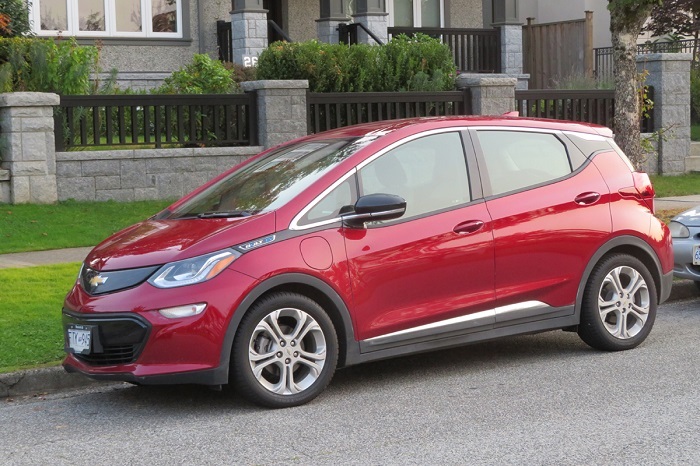EarthTalk®
From the Editors of E – The Environmental Magazine

Dear EarthTalk: I am looking to finally ditch the old minivan and upgrade to an EV. What are the best choices out there nowadays in terms of up-front cost and fuel efficiency?— J. Wilson, Summertown, TN
Now is a great time to make the jump into an electric vehicle (EV)—those futuristic new cars that run solely on electricity instead of gasoline. Of course, EVs are still more expensive than their gas-powered counterparts, and re-charging facilities can be few and far between. But those gaps are shrinking, and if you can live with a few trade-offs, you’ll be saving money down the line by avoiding the gas station altogether while helping wean humanity off of fossil fuels.
If you haven’t surveyed the EV landscape in a while, you’ll be shocked at all the choices available nowadays. Thirteen different automakers now offer American consumers some 19 different flavors of an all-EV drivetrain. Tesla remains king of the hill, currently offering three different models that get at least 300 miles per charge. While Teslas aren’t the cheapest of the EV lot, ranging in price from $40k all the way up to $120k, the savings in gas money if you drive a lot may more than make up for the premium pricing.
According to the website Zutobi.com, Teslas are also the cheapest to drive, racking up about $3 in electricity costs on average for every 100 miles driven—meaning that your total fuel expense for a cross country trip of 3,000 miles would be about $100. (Finding places to recharge every 300 miles might be a challenge, especially in those states less inclined toward supporting green vehicles.)
Tesla is far from the only EV game in town. Audi, BMW, Ford, Jaguar, Mini Cooper, Nissan, Polestar, Porsche, Volvo, Kia, Hyundai and Chevrolet all have horses in the race. If range is your thing and you don’t want a Tesla, try Ford’s Mustang Mach-E California Route 1, a two-seater that can go 305 miles on a charge, and signals the classic American car company’s newly announced commitment to a future full of EV drivetrains. Other good choices with range in mind are Chevrolet’s Bolt EV, which tops out at 259 miles per charge, and Hyundai’s Kona Electric at 258 miles per charge.
If saving money up-front is your primary concern, the best deals going in EVs include the Mini Cooper Electric Hardtop 2 Door, Nissan’s Leaf, Hyundai’s Ioniq and Chevy’s Bolt EV—each going for a suggested retail price of around $30k. The downside to several of these cheaper EVs is shorter range—the Mini Cooper can only make it 110 miles before it needs a recharge. But if you use it for short to medium length daily commute, especially to a place where it can recharge all day, then the money saved up front can go straight into the piggy bank. Another factor to keep in mind is that Americans who purchase a new EV or PHEV can still get a tax credit for up to $7,500 from Uncle Sam depending on the automaker and the number of EVs they’ve sold to date.
CONTACTS:
When Will Electric Vehicles (EVs) Outnumber Gas-Powered Cars?, emagazine.com/evs-outnumber/;
The EV Miles Report, zutobi.com/us/driver-guides/the-electric-vehicle-miles-report;
Puget Sound Energy’s Browse Electric Vehicles, ev.pse.com/vehicles/.
EarthTalk® is produced by Roddy Scheer & Doug Moss for the 501(c)3 nonprofit EarthTalk. See more at https://emagazine.com. To donate, visit https//earthtalk.org. Send questions to: question@earthtalk.org.
